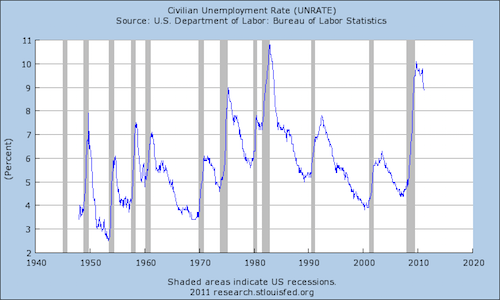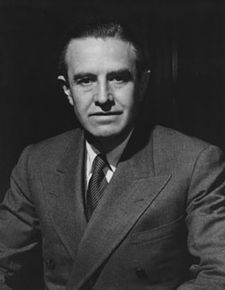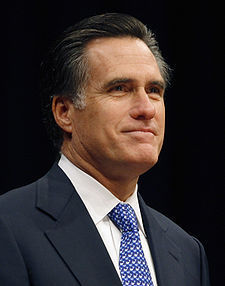Matthew Yglesias's Blog, page 2397
March 8, 2011
Is $1 Billion Cool?

The real Sean Parker says no it's not:
So is a billion dollars cool? He ponders the question carefully. "No, it's not," he says. "It's not cool. I think being a wealthy member of the establishment is the antithesis of cool. Being a countercultural revolutionary is cool. So to the extent that you've made a billion dollars, you've probably become uncool." He laughs at his retort to Aaron Sorkin.
It is nearly 3:45 p.m. and his BlackBerry is flashing alarmingly as his assistants guide him towards his next appointment, at Spotify, an online music service in which he has invested. Still muttering about Page Six, he retrieves our coats and carefully tips the attendant. Outside, a driver awaits with a Cadillac Escalade. Parker offers me a ride but I do not want to delay him. He is late.
That seems about right to me. On the other hand, if you make tons of money you can hire a driver to take you around town in a Cadillac Escalade.


Graduate Education in 1932

Peter Hylton's book Quine about the great philosopher W.V.O. Quine brought home to me how much graduate education seems to have changed over the past eighty years. As an undergraduate at Oberlin, Quine was a math major and then:
A result of Quine's decision to concentrate on mathematics was that his formal study of philosophy, as distinct from logic, was not extensive. As an undergraduate he took two survey courses in the subject, which evidently made little impression. For graduate school he chose the philosophy department at Harvard, largely because Whitehead, co-author of Principia Mathematica, was teaching there (though not teaching logic; his interests had shifted considerably in the twenty years since Principia). At Harvard he spent only two years on his doctorate. The first was spent preparing for the department's comprehensive examinations and taking courses (including C. I.Lewis's famous course on Kant). One may well imagine that the haste required to do both of these things in one year would have left Quine little time for real philosophical reflection, and less for the development of even inchoate views of his own. His second year in graduate school was devoted to the rapid completion of a dissertation devoted to Principia Mathematica.
Quine thus began his career with little background in philosophy. He does not seem to have done much work to fill in the gaps. With the notable exceptions of Russell and, especially, Carnap, he is not, in his early work, either reacting against or building upon the work of others. His references to the work of other philosophers are not always signs of any real knowledge or thought about such work.
To be clear, the career in question launched with little background in philosophy was a career as a philosopher. It doesn't seem like that would fly today.


Where America Is Moving
The press is often transfixed by population growth rates which tend to be very high in places starting from a low base, but I looked at the new Census data on population growth by country and you see that the places that are adding people the fastest are often counties where a lot of people already lived:

Maricopa County is Phoenix, Harris County is Houston, Riverside and San Bernardino are kind of far-flung suburbs of LA, Clark County is Los Vegas, Tarrant is Fort Worth, Collin is Dallas suburbs, Wake is Raleigh, and Bexar is San Antonio.
Obviously lots of folks moving to the Southwest, lots of folks moving to the US from Latin America, etc.
The problem here is that none of these are particularly good places for people to find economic opportunity. People come from Mexico to the US because the US is richer than Mexico and offers more job opportunities. By the same token, the best job opportunities in America should be found in-or-near our richest metropolitan areas. But the top ten metro areas are DC, San Francisco, Anchorage, Minneapolis, Boston, Hartford, Atlanta, Honolulu, Rochester, and Denver. The Raleigh/Durham/Cary metro area comes it at number 18—the highest rank of any metro area containing one of our top ten counties. Phoenix is 59th in household income. Greater Los Angeles is about ten percent poorer than Greater New York, but it contains three high-growth counties to New York's zero.
This is in part about the weather but it's largely about housing policy. People are moving to places that make it relatively cheap and easy to build houses.


Moving in Missouri

From the neoliberal claptrap files:
It goes against his business instincts and defies common sense, but it's the law. Munie's company, ABC Quality Moving of south St. Louis County, can handle household moves within the St. Louis area, or he can move you from here to, say, Los Angeles. But he can't move a family from St. Louis to another part of Missouri. Three years ago, ABC applied for a permit to operate statewide. As part of the process, the companies that already hold such permits had to be asked whether they needed any new competition. Not surprisingly, they said no, and ABC had to withdraw its application.
Something to note about these kind of abusive licensing laws is that they're increasingly becoming the subjects of litigation by libertarian groups. A number of people have suggested to me that the groups in question are basically doing a good job of finding sympathetic plaintiffs to try to entrench pernicious legal precedents that will block regulations that are actually necessary or important. That may well be the case, and if it's true it seems to me that it heightens the case that progressives should pay more attention to these things. The principle that the state needs the authority to regulate private business becomes easier to sustain (both politically and legally) if legislators move proactively to scrutinize these kind of things.


A Conservative Stands Up For Danielscare, But Obsession With ACA Repeal Stands In The Way of Progress
I wondered if any conservatives writers were going to stand up for Indiana Governor Mitch Daniels' record of constructive right-of-center reform against Michael Cannon's slightly insane viewpoint that any measure whatsoever to offer health care services to people in need is a betrayal. Grace-Marie Turner steps up to the plate on The Corner with an admirable item.
However, we once again see the difficulty conservatives with decent ideas about health care have in dealing with the Affordable Care Act. Health care policy is a controversial topic, and people tend to disagree about it. Liberals disagree with other liberals. Conservatives disagree with other conservatives. But what all conservatives agree on is that the Affordable Care Act must be repealed. Indeed, this is essentially the definition of what constitutes a conservative health care policy these days. So any writing on health care policy that wants a conservative label needs to gin up some reason that the ideas in question logically imply ACA repeal. Turner, for example, concludes an otherwise sober description of what Indiana's done with a federal Medicaid waiver with this:
A final note of caution: If Obamacare isn't repealed, HIP will likely have a tombstone saying "R.I.P.," since it provides far too much consumer choice and individual authority to satisfy Washington regulators.
The Affordable Care Act contains a provision boosting federal funding for community health centers; is repealing that necessary to keep HIP going?
The Affordable Care Act contains a provision cutting out the middleman on federally subsidized student loans, reducing outlays and bank profits; is repealing that necessary to keep HIP going?
The Affordable Care Act contains a provision funding comparative effectiveness research so doctors can have more scientifically valid evidence about which treatments are best; is repealing that necessary to keep HIP going?
The Affordable Care Act contains a provision mandating calorie labeling on menus at chain restaurants; is repealing that necessary to keep HIP going?
I don't think so. It's very possible that the ACA would require HIP to be modified in some respects. Alternatively, it's possible that keeping HIP in place would require the ACA to be modified in some respects. As a third alternative, since HIP currently exists under a Medicaid waiver, it's possible that the existing waiver framework is basically sufficient. It's also possible to raise objections to the many, many, many, many ACA provisions that plainly have nothing to do with Indiana's Medicaid program. Any of these arguments would be constructive contributions to future discussion. The Affordable Care Act is an immense piece of legislation and I don't think anyone wants or expects it to go un-modified indefinitely. But as long as conservatives insist that all future health care policy discussions need to begin with repeal then it's not possible to do anything.


Justice, Gender, and the Family

Today is International Woman's Day, so I thought it would be a good opportunity offer a random book recommendation of Susan Moller Okin's short masterpiece Justice, Gender, And The Family mercifully published at a time before serious books were deemed to require long subtitles. It's a book about justice and gender and the family. Specifically it's a far-reaching feminist critique of classic works in political theory. But it's genius is in finding radical conclusions in rather modest premises. Most of these classics were written during a period that would count as unacceptably patriarcal by the standards of basically everyone around today, including people who would by no means self-identify as feminist. That means these works tend to embed various unacceptably patriarchal assumptions. Okin argues that this is generally resolved by sort of taking the conclusion of a work you like, and then tacking on "but, yeah, women should also be equal." The correct procedure, however, is to start with women's equality back at the beginning of the process at which point you often find radical consequences.
The two main specifics I recall, philosophically speaking, have to do with Rawls' construction of the "original position" and with Lockean theories of acquisition. The latter account has to do with the idea that property can be justly acquired by mixing your labor with unclaimed natural resources to produce new wealth and an ownership claim. This has, as Okin notes, very real implications for the relationship between a mother and a child that tend to be sharply at odds with what we would consider acceptable practice. The solution here is to reject the Lockean entitlement claim, though I suppose it's open to libertarians to instead say that, yes, children should be the absolute property of their parents. On Rawls the point is simply that if we start with the assumption that the agents in the original position are "heads of households" (i.e., men) then of course they'll say family structure should be excluded from considerations of justice but it's not clear what normative force this would have vis-a-vis the other adults (i.e., women) thereby excluded from the construction of the principles.
The broader point is that people shouldn't go around glibly saying things like "women are in such-and-such situation on average because of their choices, not discrimination." What you need to ask yourself is "if women had had equal voice to men over the course of the previous 500 years of constructing our social and political institutions, would they have been set up so as to punish women's 'choices' in this way?" The implications here are much deeper than tacking non-discrimination clauses onto this or that bill. In current disputes about public sector workers, for example, it's clear that cops, soldiers, and firefighters have a kind of elevated status in our political culture. And it's not, I think, entirely coincidental that these are the male-dominated branches of the public sector. I think in a world where women had consistently equal voice you'd find either that these are not male-dominated fields or else (more plausibly, I think) that macho public sector endeavors wouldn't have a privileged position of public esteem.


Stagnation and Monetary Policy
I strongly agree with Ryan Avent that monetary policy has likely played a larger role in generating some problematic long-term economic trends than people generally realize.
The best evidence for this proceeds by way of analogy. In general, a person doesn't want to overeat and get fat or under-eat and starve. And it used to be that people would generally fluctuate above- and below-target. Indeed, humans evolved to get into the habit of over-eating when food is plentiful precisely because food is bound to be scarce in the future. But in today's rich countries, starvation basically never happens. That's a good thing. But it means that most people alternate between days where they eat enough food and days where they eat too much food. Consequently, the trend is toward people getting fatter. This constitutes a clear improvement over a regime of sporadic dearth and starvation, but it has led to some problems.

Similarly, until 1980 or so the economy sometimes had bouts of inflation that the Fed had to control by raising interest rates and throttling growth. Since 1980, that's never really happened. Consequently, the boom/bust cycle now alternates much less frequently than it used to. But the Fed obviously hasn't learned how to prevent recessions from happening. We had a severe one around 1990, a mild one around 2000, and a very severe one just recently. The problem here isn't that eliminating the inflation problem is a bad thing, any more than eliminating period of dearth is a bad thing. But if people never go hungry and sometimes overeat, the result will be rising obesity. If the economy never overheats but sometimes underperforms then average unemployment rates will be higher (which, as you can see above, is the case) and workers who lack unique skills will suffer.
That doesn't explain all our problems, but it does explain some of them. The decision to become lopsidedly inflation-averse wasn't undertaken for no good reason—the late seventies happened—and it's been uniform across the developed world. What's more there's some reason to think that it's a problem that gets more severe over time since low nominal interest rates during expansions seems to make it difficult for unduly unimaginative central banks to fight recessions.


Commerce Cabinet Crisis XI: The Return of Commerce Cabinet Crisis

Back in the early days of Barack Obama's administration this blog had a series known as "Commerce Cabinet Crisis" dedicated to profiling, in order, America's Secretaries of Commerce as long as that crucial (well, not really) post went unfilled. When Gary Locke was finally named to the post, the series came to an end. But now with the announcement that Locke will be replacing Jon Huntsman as Ambassador to China, the series must return.
To sum up what we've learned so far, Locke was very typical of Secretaries of Commerce throughout history—an interesting man and accomplished public servant who did lots of noteworthy things, none of which occurred during his tenure at the Department of Commerce.
Our 11th Secretary of Commerce, W. Averell Harriman was no exception to the rule. He started off as a pioneering banker with involvement in international commercial banking and also what I believe we would now call private equity. He served as FDR's special envoy to Europe in the early days of World War II and was involved in the Placentia Bay meetings that led to the Atlantic Charter. He was wartime ambassador to the Soviet Union and postwar ambassador to London. Then in 1946 his string of interesting and important jobs came to an abrupt end as he was asked by Harry Truman to perform a stint as Secretary of Commerce. What he did in that capacity remains lost to history, but by 1948 he re-emerged as an important person and was dispatched to Paris to run the Marshall Plan. Harry Truman wanted him to be the Democrats' Presidential nominee in 1952 but he lost out to Adlai Stevenson. He was elected Governor of the great State of New York in 1954, made another failed stab at the Democratic Presidential nomination in 1956. During the Kennedy/Johnson administrations he became Assistant Secretary of State for Far Eastern Affairs, then Undersecretary of State for Political affairs until 1965. Then for one last hurrah in office he was the lead American negotiator with the Vietnamese at the Paris Peace Talks.
All in all, a fascinating and accomplished life. Plus a few years as Secretary of Commerce.


March 7, 2011
Endgame
Lord it looked good on me:
— .
— Excellent news for my friend Matt Quirk.
— JM Keynes "Economics Possibilities for Our Grandchildren" (PDF).
— The progressive challenge.
— The Monkey Cage effect.
A reader suggested Moxy Fruvous' "King of Spain" in light of my advice that Arab monarchs call up King Juan Carlos for advice on becoming a constitutional monarch.


The Missing Front Runner

Chris Cillizza observes that not only is it a bit unusual that we don't have any formally announced GOP presidential candidates yet, we're also lacking a front-runner:
And now, new data from Gallup suggests the decided lack of a leader of the pack is a historic anomaly of major proportions. In the ten contested Republican presidential primary races between 1952 and 2008 — nine open seat fights and the 1976 face-off between President Gerald Ford and Ronald Reagan — Gallup polling has always shown a clear frontrunner by this time.
And, in eight of those ten contests, the polling frontrunner at that moment went on to be the party's presidential nominee. (The exceptions: Barry Goldwater trailed Richard Nixon at this point in the 1964 election and John McCain trailed Rudy Giuliani at this point in the 2008 election.)
As Cillizza notes "national polling at this point in a presidential race is almost entirely a function of name identification" rather than anything deeper. But that's interesting on its own terms. The normal pattern is for someone—the front-runner—to be a reasonably well-known national figure. Sometimes the front-runner ends up losing to someone who starts out much more obscure (Barack Obama, for example) but that's the foundation for front-running. What seems to me to be happening with these numbers is that Mitt Romney, Mike Huckabee, and Sarah Palin are all about equally well-known, preventing anyone from consolidating a leadership position. But if Huckabee and Palin both decide not to run (which seems likely), then Romney starts to look like a classic "next in line" Republican front-runner. Then the only thing standing between him and the nomination will be his record as governor and his religion.


Matthew Yglesias's Blog
- Matthew Yglesias's profile
- 72 followers




